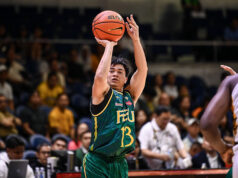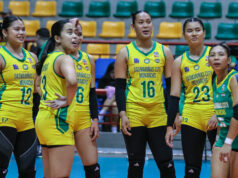Considering Novak Djokovic‘s experience in defense of his Australian Open crown, “rally” doesn’t quite describe the work he did in order to win. While he claimed the opening set with aplomb, getting 80 percent of his first serves in and winning 80% of his second, it was clear that fellow finalist Dominic Thiem would not be an easy out despite early jitters. In fact, he played nowhere near as well as his opponent in the second and third sets. For the first time in a long, long while, and for the first time ever at Melbourne Park, he looked rattled, shaken, and all too ready to fold.
In retrospect, it didn’t help that Djokovic was meted a couple of crucial violations by chair umpire Damien Dumusois for failing to serve within the allotted 25 seconds. He had been using the time between points to compose himself and gather his thoughts in the face of Thiem’s productive push, only to be docked by the strict application of the rules. The resulting loss of poise put him on the defensive even more. And, at one point, he appeared deflated beyond the point of return; he lost an unprecedented six straight games, seemingly en route to a sound defeat.
If there is any player capable of coming back from an enveloping malaise, however, it’s Djokovic. Time and again, he has shown an uncanny knack for summoning hitherto-absent energy, and, over the weekend, he proved his capacity to flip the switch anew. He took a medical timeout prior to the start of the fourth set, and whatever positive thoughts he summoned during the break proved beneficial to his cause. Finally, the player that went seven of seven in Australian Open finals showed up, and none too soon. He certainly needed every bit of his best to keep Thiem at bay, and, in trademark fashion, strike when the opportunity presented itself.
Djokovic would go on to win the fourth set, and then fifth, to take his 17th major trophy. And in extending his streak of unbeaten matches at Rod Laver Arena to 16, he managed to convert a 1-2 deficit to triumph for the first time in eight tries. He also became the first player in the Open era to win across three difference decades. He may well find the feat duplicated soon, what with Rafael Nadal and Roger Federer staying intensely competitive. At 32 and the youngest of the sport’s Big Three, however, he figures to be in the best position to wind up his career with the most number of Grand Slam titles.
To be sure, Djokovic is already being considered by quite a few quarters as first among equals. He’s definitely without peer Down Under, and because his serve — long underrated — has improved further with Goran Ivanisevic coaching him, he looks to be even more equipped to keep pace in the other majors. The next generation may be close, but, for now, he’s proving the old guard to be superior still.
Anthony L. Cuaycong has been writing Courtside since BusinessWorld introduced a Sports section in 1994. He is a consultant on strategic planning, operations and Human Resources management, corporate communications, and business development.



